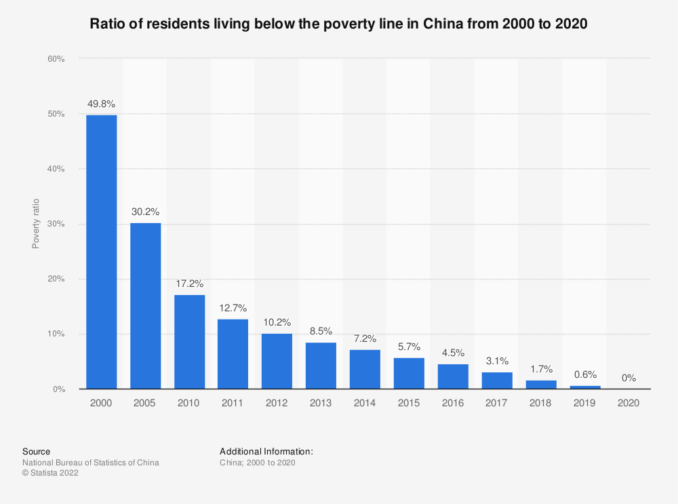More languages
More actions
Poverty reduction, poverty relief, or poverty alleviation is a set of measures intended to permanently lift people out of poverty. The goal of communism is to establish a post-scarcity economic situation where everyone is immensely wealthy, and thus all communists must first defeat poverty by providing for the basic needs of the people.
Not all poverty alleviation is carried out by communists, however. Some poverty alleviation campaigns are undertaken by bourgeois politicians in order stabilize their society to prevent a revolution, such as in social democracies.
Recent examples
China under the Communist Party

Under the Communist Party of China, 800 million Chinese citizens have been raised out of poverty.[1]
Russia under Putin
Despite not being a communist, Vladimir Putin directed the Russian economy out of the neoliberal "shock therapy" of the 1990s by nationalizing the oil and gas resources and using large state-owned enterprises to stabilize the economy and raise wages for workers.[2]
References
- ↑ "Lifting 800 Million People Out of Poverty – New Report Looks at Lessons from China’s Experience". World Bank. Archived from the original.
- ↑ Sergey Guriyev (2019-08-16). "20 Years of Vladimir Putin: The Transformation of the Economy" The Moscow Times.
